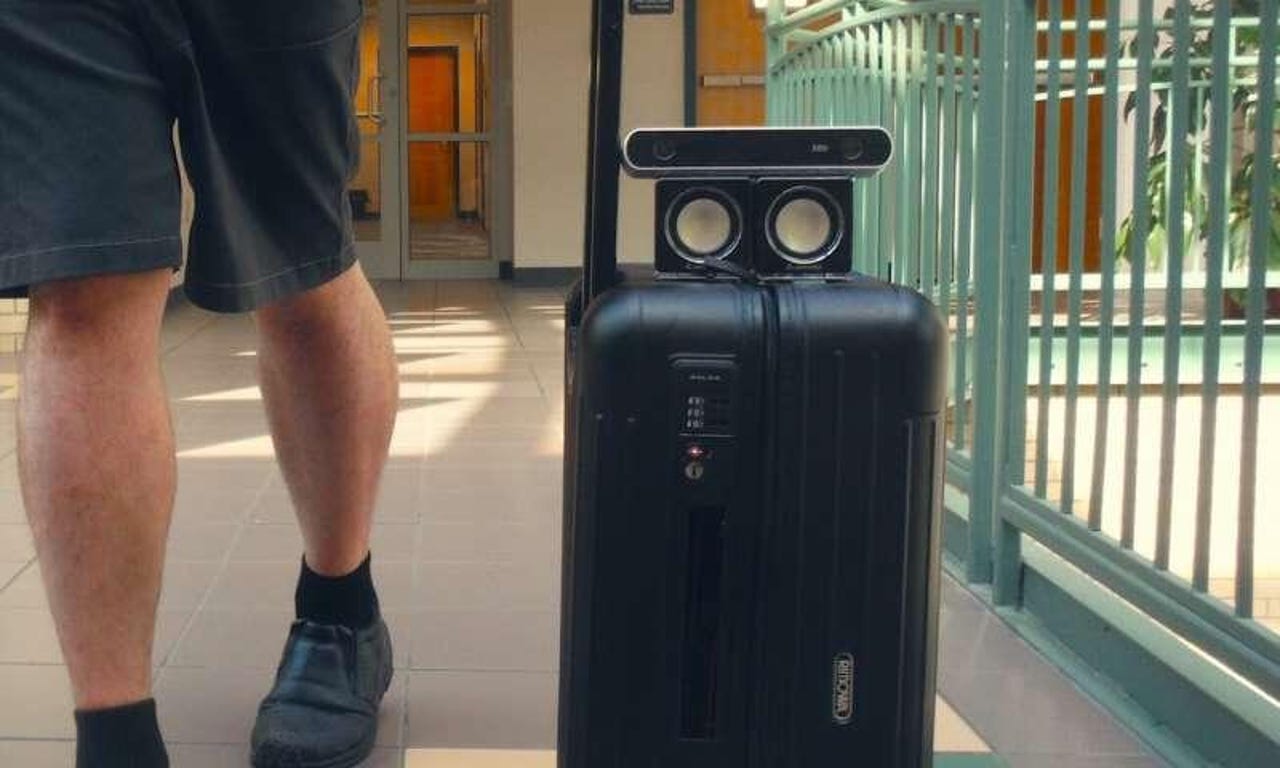A smart suitcase and navigation app for blind flyers


In a world of gadget overload, it's easy to forget the underlying purpose of technology: To help people. For those living with physical disabilities, technology is often a bridge to a world that would otherwise be more difficult to access.
I was reminded of that when reading research out of Carnegie Mellon University aimed at helping blind passengers navigate airports, spaces that are often congested and difficult to traverse.
"Despite recent efforts to improve accessibility, airport terminals remain challenging for people with visual impairments to navigate independently," said Chieko Asakawa, IBM Distinguished Service Professor in CMU's Robotics Institute and an IBM Fellow at IBM Research. Airport personnel physically assist passengers to departure gates, but there are fewer options to get to a bar for a pre-flight drink, say.
Must-see offers
"When you get a five- or six-hour layover and you need to get something to eat or use the restrooms, that is a major hassle," said one legally blind traveler who participated in a focus group as part of the research. "It would be lovely to be able to get up and move around and do things that you need to do and maybe want to do."
Two different teams of CMU researchers have developed two technologies that might help: A suitcase that sounds an alarm when a collision is imminent and a navigation app that gives turn-by-turn directions of interior airport spaces. The technologies could one day be combined to help blind users successfully traverse busy spaces like an airport terminal.
The group working on the navigation app began with the insight that bluetooth beacons are appearing in airports to help guide sighted travelers to food and shopping options. Kris Kitani, assistant research professor in the Robotics Institute, and his colleagues deployed a smartphone-based app called NavCog to make use of the beacons at Pittsburgh International Airport. The app, resulting from a collaboration between CMU and IBM, has also been deployed on campuses and in shopping malls.
In support of the project, the airport installed hundreds of additional Bluetooth beacons. A study group of ten blind participants reported positive results from the turn-by-turn directions. The app also helped participants to not veer off course in wide airport hallways.
A separate team, which included researchers from the University of Tokyo and Waseda University, created a smart suitcase called BBeep.
"Sighted people will usually clear a path if they are aware of a blind person," said Asakawa, who has been blind since age 14. "This is not always the case, as sighted people may be looking at their smartphone, talking with others or facing another direction. That's when collisions occur."
BBeep uses cameras to detect obstacles and sound an alarm when a collision is imminent. Users can wheel the suitcase with one hand and hold a white cane in another. In a real-world trial, blind users reported fewer incidents of collision and greater confidence navigating hallways.
"People were noticing that I was approaching and people were moving away … giving me a path," according to one study participant.